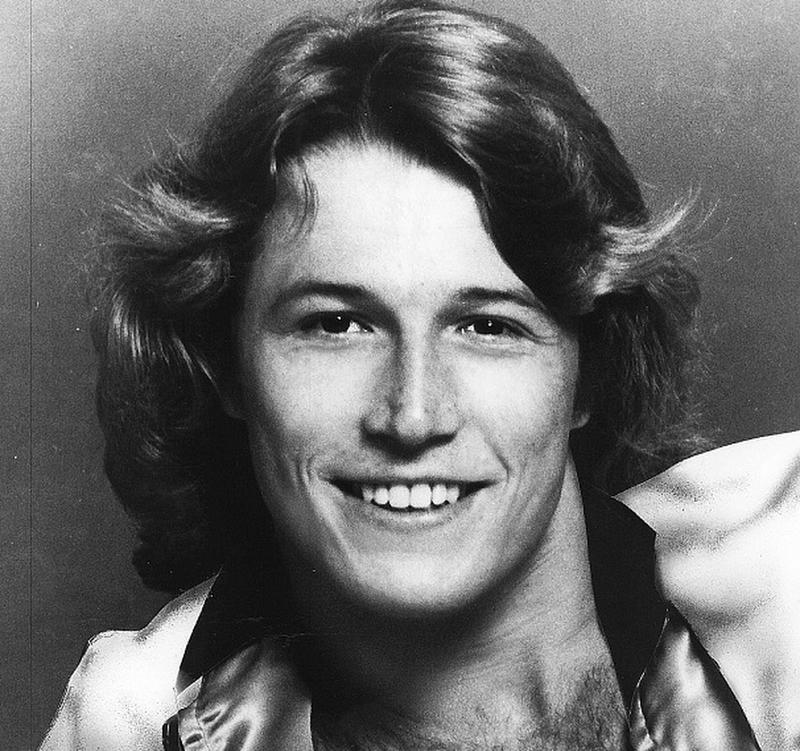
A Twilight Serenade: The Enduring Allure of “After Dark”
In the twilight of the 1970s, a decade drenched in disco and glitz, a voice emerged that was both haunting and tender, capturing the hearts of listeners worldwide. This voice belonged to none other than Andy Gibb, the youngest brother of the legendary Bee Gees. Among his repertoire, one track stands out with a luminescent glow, as if cast by the moon itself—“After Dark.” Released as part of his 1980 album bearing the same name, “After Dark” was more than just a song; it was a melodic tapestry woven with threads of yearning and introspection.
Upon its release, “After Dark” charted impressively, although it didn’t quite eclipse the commercial success of Andy’s earlier hits like “Shadow Dancing” or “I Just Want to Be Your Everything.” It reached respectable positions on various charts, including peaking at number 21 on the Billboard Hot 100. However, what it may have lacked in immediate chart dominance, it made up for in its lasting resonance with fans who found solace in its soothing rhythm and heartfelt lyrics.
The story behind “After Dark” is one of both familial collaboration and personal reflection. Co-written by Andy Gibb himself alongside his older brothers Barry, Robin, and Maurice Gibb, the song was crafted during a time when Andy was grappling with the pressures of fame and personal turmoil. The Bee Gees’ influence is palpable throughout the track, from its lush harmonies to its sophisticated arrangements—a testament to their unparalleled artistry.
Lyrically, “After Dark” speaks to themes of longing and solitude, evoking images of quiet nights filled with introspection. There’s a certain magic that unfolds when the world settles into stillness after sundown—a moment when one’s deepest thoughts and emotions come to the fore. Andy captures this sentiment beautifully, his voice imbued with a vulnerability that invites listeners into his nocturnal reverie.
For those who lived through the era of vinyl records and late-night radio broadcasts, “After Dark” might evoke memories of dimly lit rooms where the soft crackle of a record player accompanied intimate conversations or solitary reflections. It conjures images of a time when music served as both escape and companion—a gentle reminder that even in moments of darkness, there is beauty to be found.
The production of “After Dark” further enhances its ethereal quality. The arrangement is rich yet understated, allowing Andy’s vocals to shine against a backdrop of smooth guitar riffs and subtle orchestral flourishes. It’s a song that breathes with an easy grace, inviting listeners to lose themselves in its embrace.
For older audiences, revisiting “After Dark” can be akin to leafing through an old photo album; each note is a snapshot capturing not just a moment in music history but also personal memories intertwined with its melody. Perhaps it reminds them of youthful aspirations or cherished romances kindled under starlit skies. Or maybe it serves as a poignant reminder of time’s passage—of dreams pursued and paths taken.
As we listen today, decades after its initial release, “After Dark” remains timeless—a testament to Andy Gibb’s enduring legacy and his ability to connect with listeners on an emotional level. It stands as both an artifact of its era and an evergreen ballad that continues to resonate across generations.
In reflecting upon Andy Gibb’s journey—a career marked by both dazzling highs and heartrending lows—”After Dark” serves as a poignant chapter in his story. It captures not only his artistic prowess but also his humanity—a young man navigating the complexities of life under the spotlight while seeking solace in his music.
Ultimately, “After Dark” is more than just a song; it’s an invitation to pause and reflect on our own nocturnal musings—to find beauty in stillness and embrace the quiet moments that allow us to connect with our innermost selves. For those who lend their ears and hearts to its gentle call, it remains an indelible part of their musical journey—a twilight serenade that lingers long after the last note fades away.
